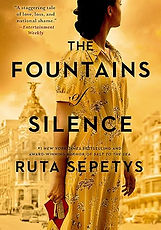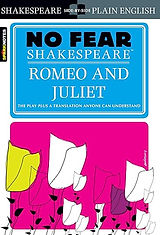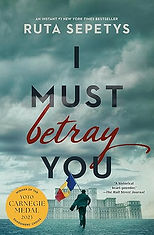7th Grade
“Somebody who only reads newspapers and at best books of contemporary authors looks to me like an extremely near-sighted person who scorns eyeglasses. He is completely dependent on the prejudices and fashions of his times, since he never gets to see or hear anything else.” -Albert Einstein
Course Description

Seventh grade language arts students will expand on the skills built from previous years. Students should expect some things to seem familiar from past years, but the level of precision and sophistication should be growing, along with the level of expectation.
We will be reading both independently and as a class, but we will also be making connections between the texts we read and the real world. In addition to paraphrasing, summarizing, and evaluating the texts, students will further analyze the differences between fact and opinion. Students will also continue to detect bias in the texts they read as well as applying objective criteria for evaluating texts. Class discussions will become more often and rigorous. In grade seven, students will listen for meaning in conversations and discussions and effectively summarize them. Students will listen more attentively and use critical analysis to formulate appropriate oral responses.
Vocabulary, grammar, and writing conventions will still be in the forefront of our class, as well as discussion of rhetorical and literary devices (syntax, diction, imagery, symbolism, etc). We will be writing and editing regularly in a variety of different ways in order to make us strong communicators. By the end of this class, we should all have something to say and a good idea of how to effectively say it.
Overall Objectives (Students should be able to):
-
Understand and comment on the language, content, structure, meaning, and significance of texts·
-
Use language to narrate, describe, analyze, explain, argue, persuade, inform, entertain, and express feelings
-
Compare texts and connect themes (also making personal or world connections)
-
Express an informed personal response to texts or topics with clarity and coherence in both oral and written communication
-
Demonstrate the ability to approach works independently
-
Structure ideas and arguments in a sustained and logical way, and supported with relevant examples
-
Distinguish the main ideas and themes and make connections
-
Use and understand an appropriate and varied range of vocabulary and idioms
-
Use correct grammar with appropriate and varied sentence structure

Assigned Reading and Book Summaries
Aside from numerous short stories, articles, poems, TED talks and videos, and independent reading books, we will also plan to read the following novels together as a class in 2025-26: Animal Farm by George Orwell, A Long Way Gone by Ishmael Beah, Things Fall Apart by Chinua Achebe, Romeo and Juliet by Shakespeare, Pride and Prejudice by Jane Austen, And Then There Were None by Agatha Christie, and a literature circles unit with a sampling of Ruta Sepetys's novels.
Plans may change as the year progresses at the teacher's discretion.
WAAS has a copy of each text for the students to borrow, but I encourage each student and their family to consider buying their own copy of the books. It is so much easier to be a strong, active reader when you mark in the book. This tremendously aids in building reading comprehension skills. Additionally, students will read many of these books again in high school and college. Having your own copy is not mandatory, just suggested. Keep in mind, though, that if you use WAAS's copy, you must take care of it, or you will have to replace it.
These reading selections will ask us to look at respect, leadership, responsibility, and justice. I stand by my choice in selecting all of the novels, short stories, poems, and/or plays that we will read this year, but if you are honestly uncomfortable reading a text, please come to me immediately so we can discuss it. I am including a summary of the texts listed above for families to have an understanding of what we will be gaining through reading and studying these texts. For further information about the texts, I suggest websites like Commonsensemedia.org or Goodreads.com. Should you have questions or reservations about any selections due to content, please contact me no later than September 15th. It is never my intention to have students read texts that cause them pain or conflict; however, I stand by each of my choices for the positive, powerful, and significant takeaways that come from reading and discussing these texts. Should a separate text need to be selected for your child, I need notice by 9/15/25 in order to best prepare.
Summaries are thanks to Amazon.com and Goodreads.com

Fountains of Silence (historical fiction)
"Madrid, 1957. Under the fascist dictatorship of General Francisco Franco, Spain is hiding a dark secret. Meanwhile, tourists and foreign businessmen flood into Spain under the welcoming promise of sunshine and wine. Among them is eighteen-year-old Daniel Matheson, the son of an oil tycoon, who arrives in Madrid with his parents hoping to connect with the country of his mother's birth through the lens of his camera. Photography--and fate--introduce him to Ana, whose family's interweaving obstacles reveal the lingering grasp of the Spanish Civil War--as well as chilling definitions of fortune and fear. Daniel's photographs leave him with uncomfortable questions amidst shadows of danger. He is backed into a corner of difficult decisions to protect those he loves. Lives and hearts collide, revealing an incredibly dark side to the sunny Spanish city.
Master storyteller Ruta Sepetys once again shines light into one of history's darkest corners in this epic, heart-wrenching novel about identity, unforgettable love, repercussions of war, and the hidden violence of silence--inspired by the true postwar struggles of Spain."
Praise for The Fountains of Silence
"Spain under Francisco Franco is as dystopian a setting as Margaret Atwood’s Gilead in Ruta Sepetys’s suspenseful, romantic and timely new work of historical fiction . . . Like [Shakespeare's family romances], 'The Fountains of Silence' speaks truth to power, persuading future rulers to avoid repeating the crimes of the past." --The New York Times Book Review

Salt to the Seas (historical fiction)
"#1 New York Times bestseller and winner of the Carnegie Medal!
"A superlative novel . . . masterfully crafted."--The Wall Street Journal
Based on "the forgotten tragedy that was six times deadlier than the Titanic."--Time
Winter 1945. WWII. Four refugees. Four stories.
Each one born of a different homeland; each one hunted, and haunted, by tragedy, lies, war. As thousands desperately flock to the coast in the midst of a Soviet advance, four paths converge, vying for passage aboard the Wilhelm Gustloff, a ship that promises safety and freedom. But not all promises can be kept . . ."

Animal Farm
A farm is taken over by its overworked, mistreated animals. With flaming idealism and stirring slogans, they set out to create a paradise of progress, justice, and equality. Thus the stage is set for one of the most telling satiric fables ever penned—a razor-edged fairy tale for grown-ups that records the evolution from revolution against tyranny to a totalitarianism just as terrible.

And Then There Were None
"If you’re one of the few who haven’t experienced the genius of Agatha Christie, this novel is a stellar starting point." — DAVID BALDACCI, #1 New York Times Bestselling Author
An exclusive authorized edition of the most famous and beloved stories from the Queen of Mystery.
Ten people, each with something to hide and something to fear, are invited to an isolated mansion on Indian Island by a host who, surprisingly, fails to appear. On the island they are cut off from everything but each other and the inescapable shadows of their own past lives. One by one, the guests share the darkest secrets of their wicked pasts. And one by one, they die…
Which among them is the killer and will any of them survive?

A Long Way Gone
This is how wars are fought now: by children, hopped-up on drugs and wielding AK-47s. Children have become soldiers of choice. In the more than fifty conflicts going on worldwide, it is estimated that there are some 300,000 child soldiers. Ishmael Beah used to be one of them.
What is war like through the eyes of a child soldier? How does one become a killer? How does one stop? Child soldiers have been profiled by journalists, and novelists have struggled to imagine their lives. But until now, there has not been a first-person account from someone who came through this hell and survived.
In A Long Way Gone, Beah, now twenty-five years old, tells a riveting story: how at the age of twelve, he fled attacking rebels and wandered a land rendered unrecognizable by violence. By thirteen, he'd been picked up by the government army, and Beah, at heart a gentle boy, found that he was capable of truly terrible acts.

Things Fall Apart
“A true classic of world literature . . . A masterpiece that has inspired generations of writers in Nigeria, across Africa, and around the world.” —Barack Obama
“African literature is incomplete and unthinkable without the works of Chinua Achebe.” —Toni Morrison
Nominated as one of America’s best-loved novels by PBS’s The Great American Read
Things Fall Apart is the first of three novels in Chinua Achebe's critically acclaimed African Trilogy. It is a classic narrative about Africa's cataclysmic encounter with Europe as it establishes a colonial presence on the continent. Told through the fictional experiences of Okonkwo, a wealthy and fearless Igbo warrior of Umuofia in the late 1800s, Things Fall Apart explores one man's futile resistance to the devaluing of his Igbo traditions by British political and religious forces and his despair as his community capitulates to the powerful new order.
With more than 20 million copies sold and translated into fifty-seven languages, Things Fall Apart provides one of the most illuminating and permanent monuments to African experience. Achebe does not only capture life in a pre-colonial African village, he conveys the tragedy of the loss of that world while broadening our understanding of our contemporary realities.

Pride and Prejudice
Few have failed to be charmed by the witty and independent spirit of Elizabeth Bennet in Austen’s beloved classic Pride and Prejudice. When Elizabeth Bennet first meets eligible bachelor Fitzwilliam Darcy, she thinks him arrogant and conceited; he is indifferent to her good looks and lively mind. When she later discovers that Darcy has involved himself in the troubled relationship between his friend Bingley and her beloved sister Jane, she is determined to dislike him more than ever. In the sparkling comedy of manners that follows, Jane Austen shows us the folly of judging by first impressions and superbly evokes the friendships, gossip and snobberies of provincial middle-class life.

Romeo and Juliet (drama/ play/ classic)
"In Romeo and Juliet, Shakespeare creates a violent world, in which two young people fall in love. It is not simply that their families disapprove; the Montagues and the Capulets are engaged in a blood feud.
In this death-filled setting, the movement from love at first sight to the lovers’ final union in death seems almost inevitable. And yet, this play set in an extraordinary world has become the quintessential story of young love. In part because of its exquisite language, it is easy to respond as if it were about all young lovers."

I Must Betray You (historical fiction)
"A gut-wrenching, startling historical thriller about communist Romania and the citizen spy network that devastated a nation, from the #1 New York Times bestselling, award-winning author of Salt to the Sea and Between Shades of Gray.
Romania, 1989. Communist regimes are crumbling across Europe. Seventeen-year-old Cristian Florescu dreams of becoming a writer, but Romanians aren’t free to dream; they are bound by rules and force.
Amidst the tyrannical dictatorship of Nicolae Ceaușescu in a country governed by isolation and fear, Cristian is blackmailed by the secret police to become an informer. He’s left with only two choices: betray everyone and everything he loves—or use his position to creatively undermine the most notoriously evil dictator in Eastern Europe.
Cristian risks everything to unmask the truth behind the regime, give voice to fellow Romanians, and expose to the world what is happening in his country. He eagerly joins the revolution to fight for change when the time arrives. But what is the cost of freedom?
Master storyteller Ruta Sepetys is back with a historical thriller that examines the little-known history of a nation defined by silence, pain, and the unwavering conviction of the human spirit."

"NEW YORK TIMES BESTSELLER • From the award-winning author of Salt to the Sea comes a “superb” (The Wall Street Journal), “eye-opening” (Los Angeles Times) novel of survival and hope in the darkest of places—the inspiration for the major motion picture Ashes in the Snow
"Few books are beautifully written, fewer still are important; this novel is both." —The Washington Post
WINNER OF THE GOLDEN KITE AWARD • A CARNEGIE MEDAL NOMINEE • A WILLIAM C. MORRIS AWARD FINALIST • A KIRKUS REVIEWS BEST YOUNG ADULT BOOK OF THE CENTURY
A knock comes at the door in the dead of night, and Lina’s life changes in an instant. With her young brother and mother, she is hauled away by the Soviet secret police from her home in Lithuania and thrown into a cattle car en route to Siberia. Separated from her father, Lina secretly passes along clues in the form of drawings, hoping they will reach his prison camp. But will her letters, or her courage, be enough to reunite her family? Will they be enough to keep her alive?
A moving and haunting novel about loss, fear, and ultimately, survival, Between Shades of Gray is a tour de force of historical and emotional storytelling."